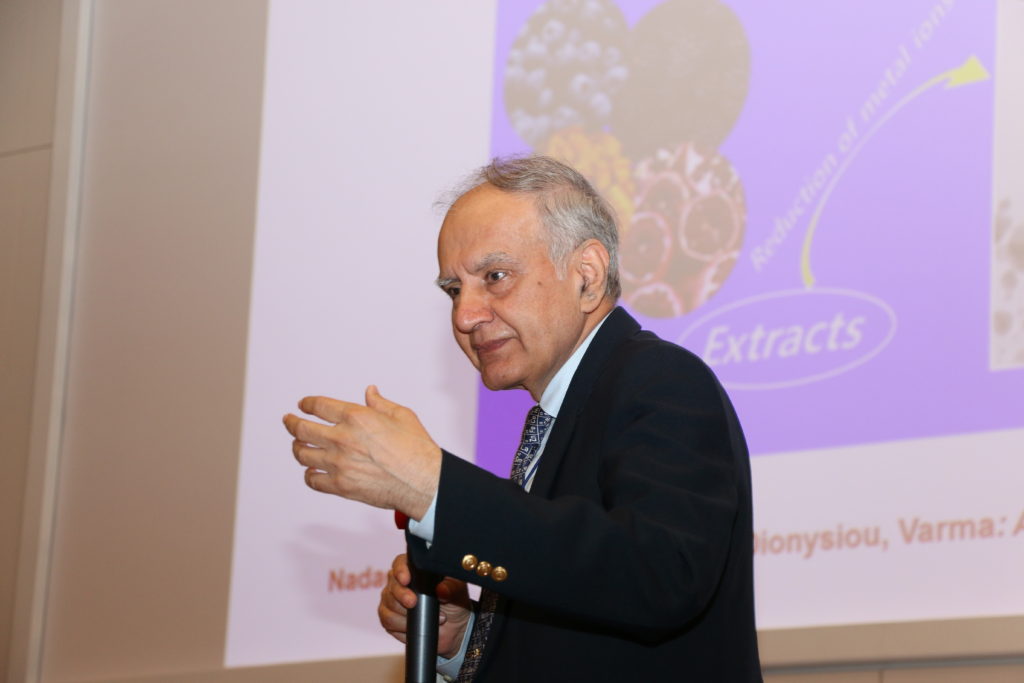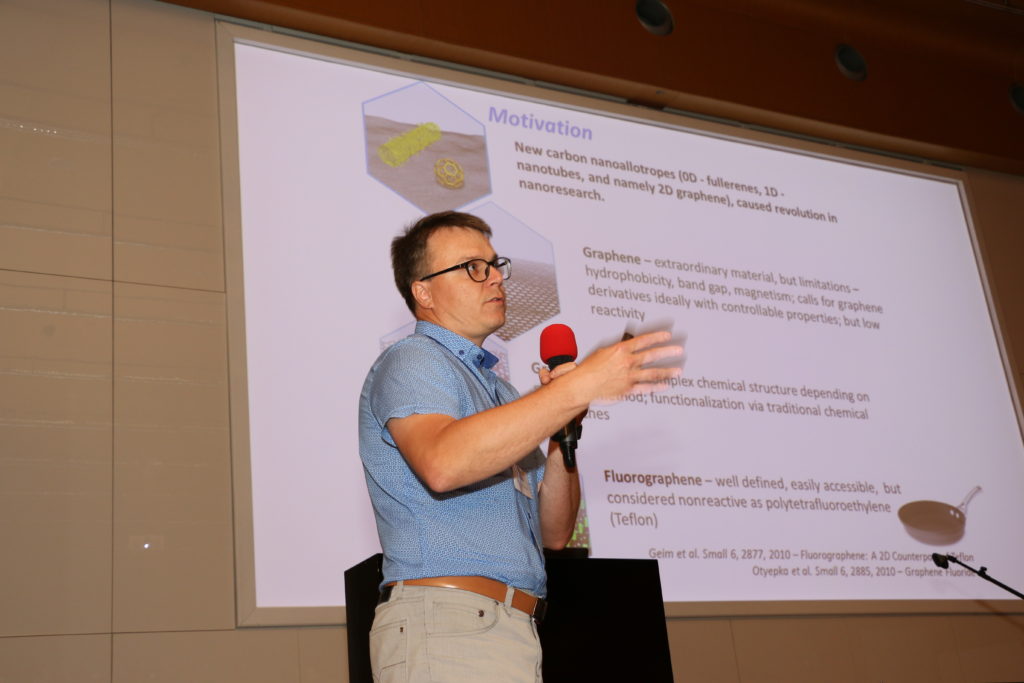Plant Biotechnology: Green for Good V conference has stimulated collaborative research of nano- and biotechnologies
RCPTM’s participation in the conference Plant Biotechnology: Green for Good, which was organized by the Centre of the Region Haná for Biotechnological and Agricultural Research (CRH) on behalf of the European Federation of Biotechnology (EFB) in June, has provided fresh inspiration for collaboration between the two fields. Chemists Rajender Varma and Jan Filip delivered their talks as part of a new section called Sustainable Environmental Technologies, supervised by Michal Otyepka, RCPTM’s vice director. Michal Otyepka also shared his experience with solving as well as applying for and evaluating ERC grants.
While Rajender Varma tackled the issue of exploiting carbonaceous waste for environmental technologies (Carbonaceous waste: sustainable applications in chemical transformations and environmental remediation), Jan Filip spoke about iron-based nanomaterials for water remediation (Iron-based (nano)materials: an advanced tool for water).

“The G4G conference was a very stimulating forum, which brought new insights into the fields of plant biotechnologies and sustainable environmental nanotechnologies and the potential overlaps between them. Although I originally expected that environmental nanotechnologies would arouse only marginal interest, in the end I succeeded in making two valuable contacts fostering collaboration between nanotechnologies and biotechnologies. One was from Olomouc and the other one form Switzerland. On the whole, I was pleasantly surprised by the high level of the talks, posters, and the nice atmosphere throughout the whole event,” said Jan Filip.
According to Michal Otyepka, exploring the potential overlaps between the two fields has always been an issues. RCPTM and CRH have been dealing with technologies for sustainable development and collaborative research may bring beneficial results. “RCPTM can contribute by monitoring pollution, wastewater; groundwater; and surface water remediation, new materials for environmentally friendly chemical processes, or new materials deploying waste products,” explained Otyepka.

The conference was held at the Faculty of Science, Palacký University Olomouc, on June 10–13. About 150 researchers and students from 20 different countries took part in it, attending 35 lectures and presenting about 80 posters. The conference has been organized every two years since 2011.


